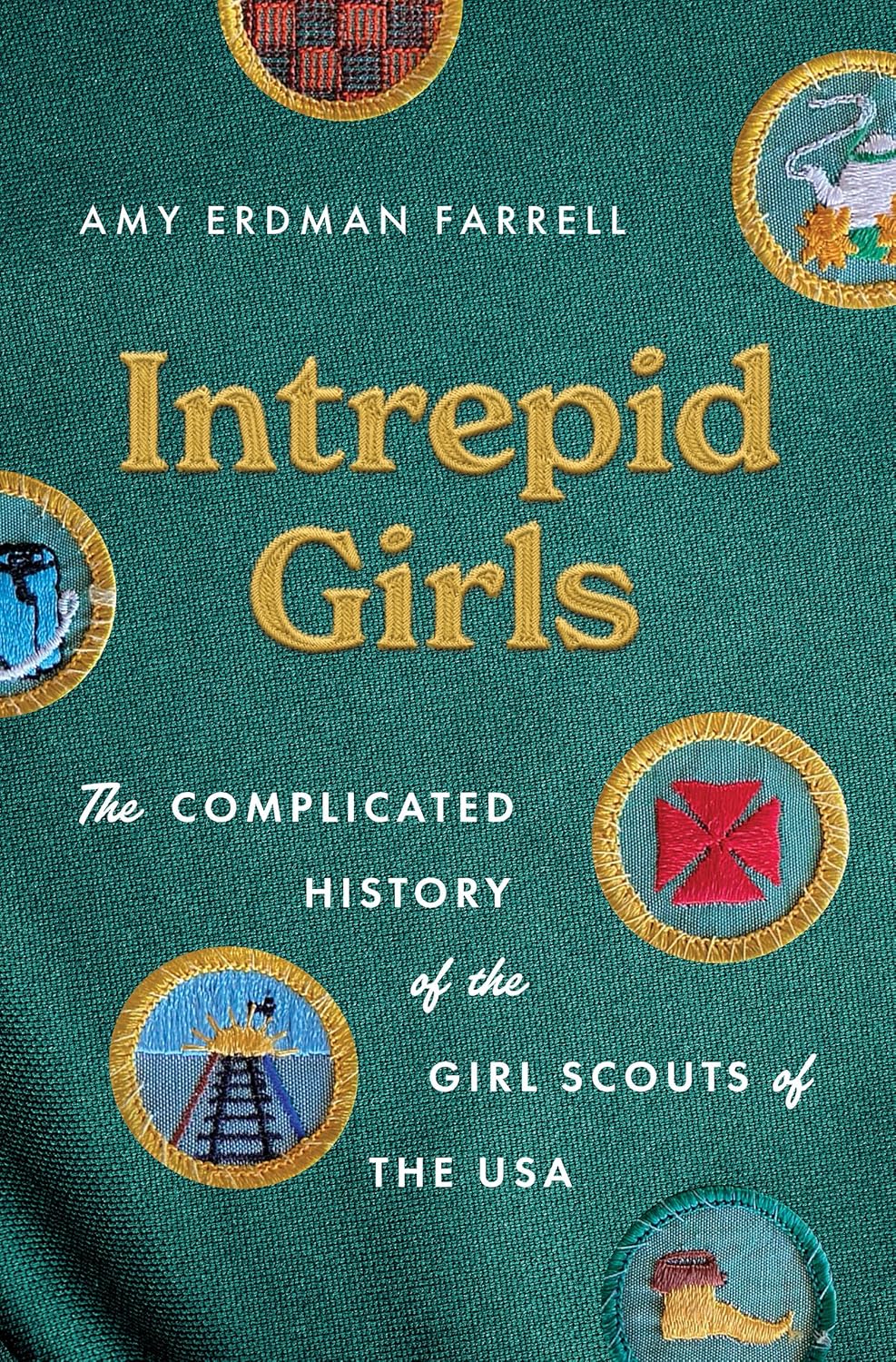Review of Intrepid Girls: The Complicated History of the Girl Scouts of the USA by Amy Erdman Farrell

Intrepid Girls: The Complicated History of the Girl Scouts of the USA
Amy Erdman Farrell
The University of North Carolina Press, 2025, 320 pages
$35.00
Reviewed by Atlanta Tsiaoukkas
In Intrepid Girls: The Complicated History of the Girl Scouts of the USA, Amy Erdman Farrell takes on the momentous task of documenting, with painstaking attention to detail, the multifaceted and complex history of the Girl Scouts of the USA (GSUSA). Farrell impressively spans the life of this American institution from the mythologies built up around its founder, Juliette Gordon Low, all the way to how the organisation now manages competing accusations of wokeness and conservatism. Farrell has provided a definitive account of the GSUSA which builds remarkably on previous histories in breadth, perceptiveness, and a willingness to acknowledge the organisation’s complicity in regimes of oppression.
Intrepid Girls unearths a number of significant events in the GSUSA’s over a hundred-year history and it is immediately evident that this is an extensively researched project involving many years hard at work in GSUSA archives. Beginning with the organisation’s origins as an improvement upon the United Kingdom’s imperialist Girl Guides, Farrell takes the reader through Girl Scouting’s early years, its government-sanctioned involvement in both American Indian residential schools and Japanese-American incarceration camps, and its persistent failure to desegregate and support African-American Girl Scouts throughout the twentieth century. From its initial history as a conformist organisation working hand-in-hand with the US government to assimilate girls of colour, indigenous girls, and immigrant girls, the organisation is accused of sowing subversion increasingly in the later years of the twentieth century into the twenty-first century. Caught up in McCarthyism, disputes over sex education, and endorsement of the United Nations, the GSUSA undergoes socio-cultural changes which shift it from a stalwart of patriotism to a threat to family values.
Central to Farrell’s narrativising of the history of the GSUSA is identifying the ‘strategies of innocence’ used in response to attacks from all sides of the political spectrum. Presenting Girl Scouts as inherently innocent, unable and unwilling to discuss controversial topics or politicised issues, Farrell shows how the GSUSA persistently engages in a ‘dangerous innocence’ which denies its complicity in oppressive regimes under the guise of girlishness. Farrell is expertly able to follow this thread throughout the GSUSA’s story, acknowledging how silence and a desire to please all stakeholders all the time, even at the expense of Girl Scouts themselves, has led to an organisation fraught with doing too little, too late. Essential to this history is Farrell’s repeated interrogations of an organisation that seeks to promote girls’ leadership, whilst consistently refusing to name which girls are leading, and to where they are expected to lead. Intrepid Girls asks hard questions about how the GSUSA represents itself to the public, and how these representations are grounded in a history of deploying whiteness as innocence and neutrality as apoliticalness.
Alongside Farrell’s thorough research, the story of the Girl Scouts is enhanced by reflections on her own involvement in the organisation. Chapter Ten offers an account of Farrell’s 1975 pilgrimage to Juliette Gordon Low’s birthplace in Savannah, Georgia, with her Girl Scout troop. In providing this snippet of personal history, Farrell presents a case study for her claims about the GSUSA’s silence and feigned ignorance on social issues relating to oppression. She highlights how Low’s social position in the late nineteenth century as a wealthy heiress in the South, bolstered by both slavery and taking land from American Indians, provided the seeds for the GSUSA. Yet twelve-year-old Farrell was taught nothing about slavery, stolen land, or how these enabled the existence of the troop in which she found so much community. As such, Farrell offers a poignant account of what happens when innocence is adopted as a ploy to evade unpleasant histories and perpetuate hero-worship of real, complicated people. The inclusion of Farrell’s personal insights is a boon to this work of history, emphasising the real and lived impacts of the Girl Scouts, both positive and negative.
Intrepid Girls: The Complicated History of the Girl Scouts of the USA is a work of impressive depth and a significant contribution to our knowledge of the GSUSA as an organisation that now represents a major aspect of American culture, known throughout the world. Farrell’s analysis exceeds that of a facts-driven history, offering an analytical lens on the strategies and actions of the GSUSA which forces us to look past the sweet-as-pie façade of the Girl Scouts and examine its deeper, messier, complex history.
Atlanta Tsiaoukkas is a UK-based writer and researcher currently working towards a PhD on queer Victorian schoolgirls and their homoerotic friendships. Find her on Instagram @aatlanta_aa and Substack girlishh.substack.com.
"Empowerment comes from ideas."
― Charlene Carruthers
"Your silence will not protect you."
— Tourmaline
"Gender is the poetry each of us makes out of the language we are taught."
— Leila Raven


